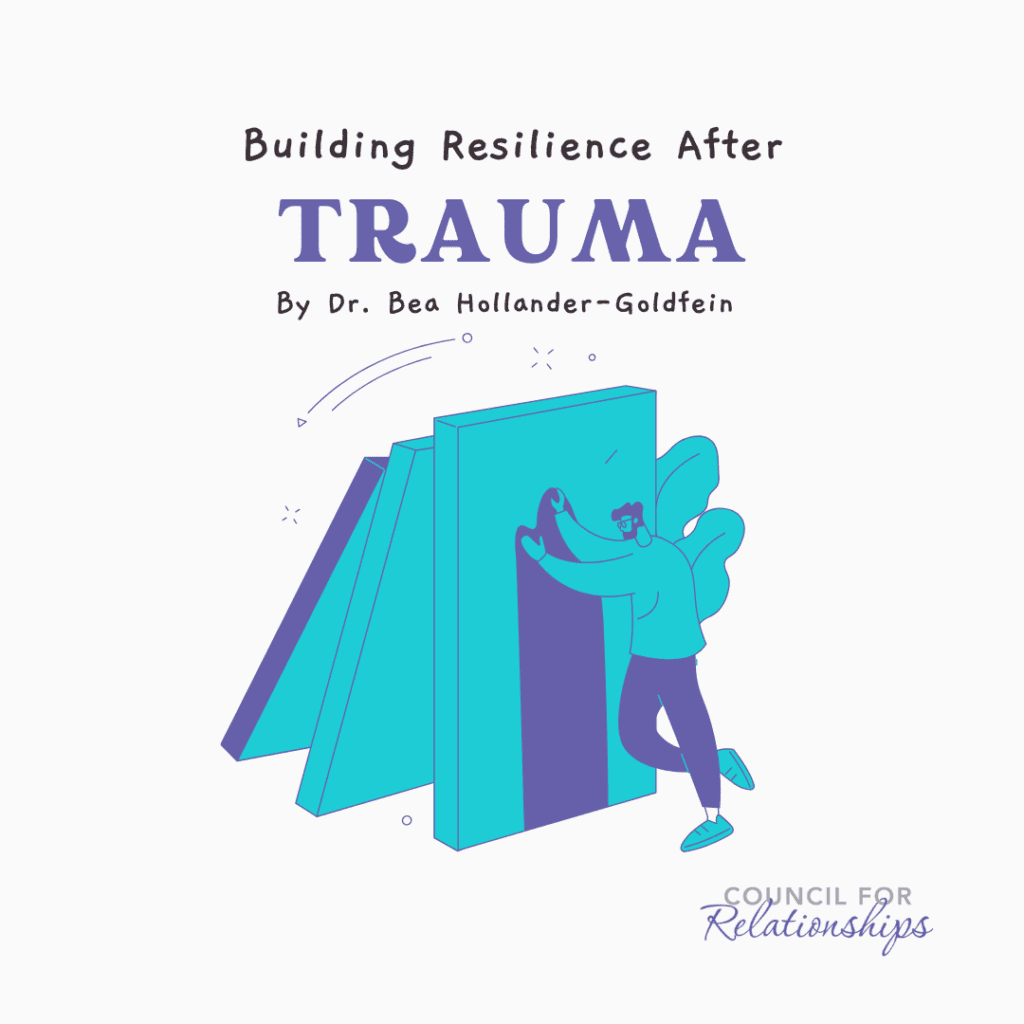Building Resilience After Trauma: Shifting Perspectives
Many people face traumatic experiences. While they can feel overwhelming, building resilience after trauma can help us regain strength and find new meaning. Resilience is the ability to bounce back from difficult situations, often bringing a deeper awareness of life’s value. Dr. Ann Masten, a well-known researcher, explains that self-regulation—or controlling our emotions—plays a key role in resilience. Let’s explore how building resilience after trauma works and what we can do to strengthen it in our lives.
Understanding Self-Regulation and Resilience
In the mental health field, many therapy models focus on self-regulation. Self-regulation helps us manage emotions, thoughts, and reactions. It’s also called “affect regulation.” This ability is crucial for responding to overwhelming feelings like anxiety and fear, especially during uncertain times like the pandemic. When we calm ourselves, we improve our mental health and help those around us, including friends and family.
Research by experts like Ann Masten shows that self-regulation is a building block of resilience. When we practice self-regulation, we can better handle the stress of daily life and more effectively manage tough situations.
The Power of Self-Care in Building Resilience
Self-care includes activities that help us manage stress and maintain balance. When we’re stressed, we can lose focus or feel disconnected. Self-care practices help restore calm and allow us to focus on what’s important. Here are a few examples:
- Yoga
- Meditation
- Deep breathing
- Exercise
- Religious practices
These self-care activities can reduce the impact of stress on our body and mind, strengthening our resilience. Building resilience after trauma involves handling immediate stress and creating long-term habits to cope with challenges.
Brain Science and Emotional Regulation
Scientists study the human brain to understand how it affects emotions. Neuroscience, the study of brain function, helps explain why self-regulation matters. Two parts of the brain are especially important: the prefrontal cortex and the amygdala.
- Prefrontal Cortex: This part of the brain helps us organize our thoughts and make decisions. It’s crucial for problem-solving and emotional control.
- Amygdala: This area is the brain’s emotional center, often responding to fear and threat. When we feel danger, it triggers “fight, flight, or freeze” reactions.
When we feel stressed, the connection between these two areas weakens, making it hard to think clearly. However, building resilience after trauma strengthens these brain connections, helping us stay calm under pressure.
How Human Connection Builds Resilience
We are wired for human connection. Neuroscientists explain that humans have mirror neurons, which allow us to pick up on other people’s feelings. This connection helps us understand each other and builds empathy. When we feel close to others, we become more resilient. Babies learn this way from their caregivers, developing a sense-of-self based on the feedback they get from loved ones. As adults, human relationships continue to play a key role in resilience.
Being around people who support us, especially in tough times, helps us manage stress. Building resilience after trauma isn’t just an individual effort – it grows stronger with the help of others.
Shifting Perspectives for Emotional Health
Life constantly changes, and shifting perspectives is a normal part of handling big life events. People often feel conflicting emotions, like sadness and joy, in big moments like weddings or job changes. It’s normal to feel uncertain in new situations. For example, we may wonder, “Am I good enough?” or “Can I handle this?” These thoughts are common.
These shifting feelings may be more intense during times of trauma or stress. However, building resilience after trauma allows us to see these shifts as part of being human. We can learn to be open to new experiences and trust that things will stabilize.
Managing Past Traumas and Current Stress
Past traumatic experiences can sometimes resurface during stressful times. When this happens, the central nervous system becomes highly active, and the amygdala can trigger intense reactions. If a memory feels too painful, the brain stores fragments of it in different areas, like the temporal lobe and frontal lobe. These memories may resurface when stress connects to them.
To manage these triggers, building resilience after trauma involves facing these memories with self-regulation and understanding. Sometimes, seeking help from mental health professionals can provide tools to process these emotions and bring more peace.
The Importance of Self-Compassion
Self-compassion is at the core of resilience. Self-compassion means being kind to ourselves, especially when we feel overwhelmed or unsure. By learning to be patient and understanding, we acknowledge our thoughts and feelings without judging them.
During difficult times, remember that it’s okay to struggle. Practicing self-compassion reminds us that we’re not alone in facing challenges. Building resilience after trauma doesn’t mean we’ll never feel stress again – it means we have the tools to handle it and accept the ups and downs of life.

See if Dr. Hollander-Goldfein fits you and your budget. Contact her today.
About the Author: Dr. Bea Hollander-Goldfein
Dr. Bea Hollander-Goldfein, PhD, LMFT, CCTP, APIT, is a Licensed Marriage and Family Therapist and Certified Clinical Trauma Professional with over 30 years of experience helping individuals, couples, and families build resilience after trauma. She specializes in working with clients facing complex trauma, anxiety, and relational challenges. Dr. Hollander-Goldfein is dedicated to helping clients strengthen their self-regulation skills, deepen self-compassion, and find practical pathways to healing.
In addition to her private practice, Dr. Hollander-Goldfein co-directs CFR’s Transcending Trauma Project, where she explores the impact of trauma on human connection, resilience, and mental health. Her compassionate approach and research-backed methods guide clients toward emotional well-being, making her a trusted resource for individuals seeking to improve their mental health.
If you want to learn more, you can schedule a free 15-minute consultation with Dr. Hollander-Goldfein to see if her approach aligns with your needs and budget. Visit her profile to get started.
Visit CFR’s Therapist & Psychiatrist Directory to connect with a professional specializing in individual, family, or couples therapy. We are dedicated to matching you with the right therapist who meets your needs and fits your budget.
If you’re experiencing an emergency, please contact 911 or your nearest emergency services.
More Resources from CFR: Supporting Resilience, Self-Care, and Mental Wellness
Looking for more resources on building resilience after trauma and strengthening your mental health? CFR offers blog posts and guides that help individuals and families practice self-care, manage emotional stress, and find practical steps to support mental wellness. Topics include deep breathing, emotional health, therapy techniques, and the science behind resilience and trauma recovery.
Stay Connected! Sign up for our mailing list to receive updates on therapy services, mental health resources, and helpful tips to support you and your loved ones achieve resilience and emotional well-being.

